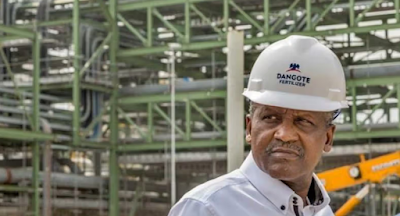Nigeria staged a remarkable fightback from two goals down to beat hosts Morocco 3-2 and win the Women’s Africa Cup of Nations on Saturday.
It was a record-extending 10th triumph for Nigeria, confirming their status as the most successful women’s team in Africa. Esther Okoronkwo and Folashade Ijamilusi led the fightback at Rabat’s Stade Olympique before the substitute Jennifer Echegini swept home an 88th-minute winner.
The Morocco captain, Ghizlane Chebbak, and the winger Sanaâ Mssoudy scored in the first half hour to see the home team take a surprise lead as they sought to become only the fourth country to take the continental title after Nigeria, Equatorial Guinea and South Africa.
The Super Falcons pick up $1m in prize money – doubled since the last edition – and become the first side to lift the new-look Wafcon trophy.
In Friday’s third-place playoff, Ghana defeated South Africa on penalties after a 1-1 draw in Casablanca. Nonhlanhla Mthandi’s fine strike from outside the penalty area put Banyana Banyana in front just before the break, but Ghana levelled in the 68th minute when a header from South Africa defender Alice Kusi deflected in off the goalkeeper Andile Dlamini.
Linda Motlhalo was denied by the Ghana goalkeeper Cynthia Konlan late on, before Evelyn Badu hit the crossbar for the Black Queens in stoppage time. It was Konlan who made the difference in the shootout, saving two South Africa penalties as Ghana won 4-3. Victory over the defending champions earned Ghana their first top-three finish at the Women’s Africa Cup of Nations since 2016.
It was a record-extending 10th triumph for Nigeria, confirming their status as the most successful women’s team in Africa. Esther Okoronkwo and Folashade Ijamilusi led the fightback at Rabat’s Stade Olympique before the substitute Jennifer Echegini swept home an 88th-minute winner.
The Morocco captain, Ghizlane Chebbak, and the winger Sanaâ Mssoudy scored in the first half hour to see the home team take a surprise lead as they sought to become only the fourth country to take the continental title after Nigeria, Equatorial Guinea and South Africa.
The Super Falcons pick up $1m in prize money – doubled since the last edition – and become the first side to lift the new-look Wafcon trophy.
In Friday’s third-place playoff, Ghana defeated South Africa on penalties after a 1-1 draw in Casablanca. Nonhlanhla Mthandi’s fine strike from outside the penalty area put Banyana Banyana in front just before the break, but Ghana levelled in the 68th minute when a header from South Africa defender Alice Kusi deflected in off the goalkeeper Andile Dlamini.
Linda Motlhalo was denied by the Ghana goalkeeper Cynthia Konlan late on, before Evelyn Badu hit the crossbar for the Black Queens in stoppage time. It was Konlan who made the difference in the shootout, saving two South Africa penalties as Ghana won 4-3. Victory over the defending champions earned Ghana their first top-three finish at the Women’s Africa Cup of Nations since 2016.


